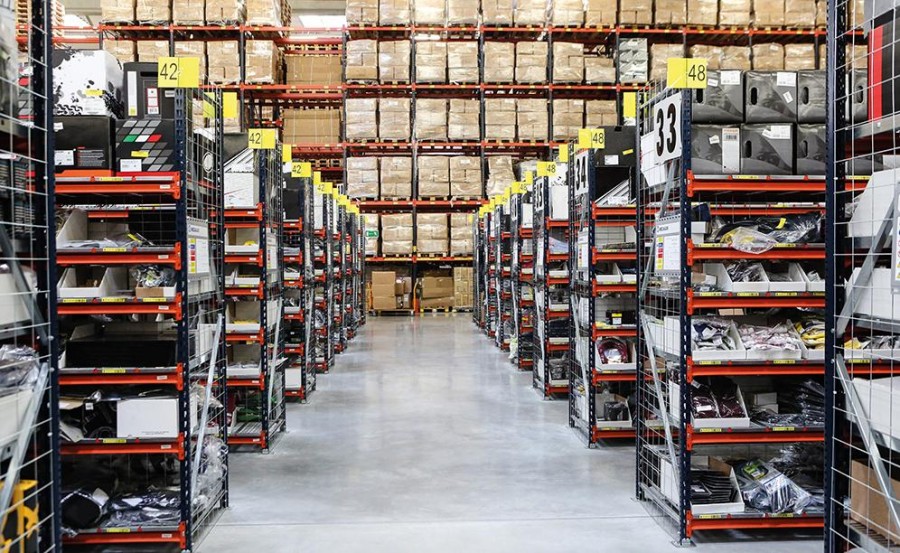The UK manufacturing sector fell back into contraction territory in March, as output declined following a slight increase in February.
Market conditions remained subdued overall, as new export business decreased and overall new order books posted only fractional growth.
There was positive news on the price and supply fronts, however, as cost inflation eased and average supplier lead times improved to the greatest extent in survey history.
The seasonally adjusted S&P Global / CIPS UK Manufacturing Purchasing Managers’ Index (PMI) fell to 47.9 in March, down from February's seven-month high of 49.3 and the earlier flash estimate of 48.0. The PMI has stayed below the neutral 50.0 mark for eight successive months.

Manufacturing production contracted for the eighth time in the past nine months in March. Output was scaled back in response to subdued market demand, declining new export orders and a preference among companies for reduced inventory holdings (itself a by-product of efforts to control costs and improve cash flow and working capital).
Business optimism strengthened to a 13-month high, with almost 60% of manufacturers forecasting output to rise over the coming year. The downturn in output was driven by declines in both the consumer and intermediate goods sectors. In contrast, investment goods production rose for the second month in a row.
Output fell at small-sized manufacturers, whereas growth was seen at medium- and large-scale producers. Market conditions remained tough in March, highlighted by the continued subdued trend in new order intakes.
New business rose only fractionally (albeit the first gain in ten months), as a mild improvement in domestic demand was more than offset by a further solid decline in new export orders. Backlogs of work meanwhile fell further, as companies caught up on unfilled orders during the current period of slack demand.
Foreign demand for UK manufactured goods contracted for the fourteenth month in a row. Where a decline was reported, manufacturers linked this to weaker demand from the US, Europe and China. Subdued global economic conditions and exchange rate factors were also mentioned.
The end of the first quarter provided better news on the supply and price fronts. Average vendor performance improved to the greatest extent in the 31-year survey history, reflecting better input availability, reduced supply-chain disruption and new capacity coming on stream at suppliers. Lower levels of purchasing activity also contributed to the improvement in vendor performance.
Input buying volumes declined for the ninth successive month, reflecting reduced output, subdued demand, a preference for holding less stock and cost-control considerations. Inventories of inputs and finished products were both depleted during the latest month. Input price inflation eased to its lowest rate since June 2020.
Although a wide range of materials were reported to still be rising in price, there were also reports of better resource availability, reduced supply chain constraints and lower costs for certain commodities leading to lower prices in some cases. Output charges rose, albeit at a slower pace, as companies maintained efforts to pass on higher costs.
March saw employment reduced for the sixth month in a row. Staffing levels fell at medium- and large-sized enterprises, in contrast to jobs growth at small-scale producers. Companies reported that redundancies, the non-replacement of leavers and cost saving strategies all contributed to the latest round of job losses.
Rob Dobson, Director at S&P Global Market Intelligence, said: “UK manufacturing production fell back into contraction at the end of the opening quarter, as companies scaled back production in response to subdued market conditions. Although total new orders saw a fractional increase, this followed on from a nine-month sequence of contraction and suggests that order book levels remain low overall. Declining new export order intakes remain a significant drain on demand, offsetting signs of a modest revival in the domestic market.
"There was better news on the price and supply fronts during March, however. Input price inflation hit its lowest level since June 2020. Although the index tracking selling prices also signalled a deceleration, it stayed at a higher level than its input costs equivalent to suggest some respite for manufacturers' margins. Supply chains also continued to recover from the immense pressure experienced over the past three-and-a-half years, with March seeing average vendor lead times improve to the greatest extent during the 31-year survey history. This should hopefully filter through to further cost reductions and lessen the disruption to production workflows in coming months.”
Dr John Glen, Chief Economist at the Chartered Institute of Procurement & Supply, said: “March was a month of two halves where supplier delivery times saw the biggest improvement for three decades but the continued weakness overall in new order levels, dragged manufacturers further back into the abyss of contraction.
“It was the continuing spartan landscape in terms of marketplace opportunity that was largely to blame. The small uplift in new homegrown orders had little effect with months of low demand to recover from and whilst exports continued to plummet affected by exchange rates. This domino effect meant manufacturers scaled back purchasing as a way of maintaining cashflow and reduced operational capacity levels through job shedding strategies for the sixth consecutive month.
“This is disappointing news for manufacturing companies still experiencing turbulent business times but optimism in the sector rose to the highest for 13 months. Careful planning around business costs and a close watch on the economy’s performance means that companies will be in a stronger position to take advantage of future opportunities now that the UK has narrowly avoided a recession.”




















